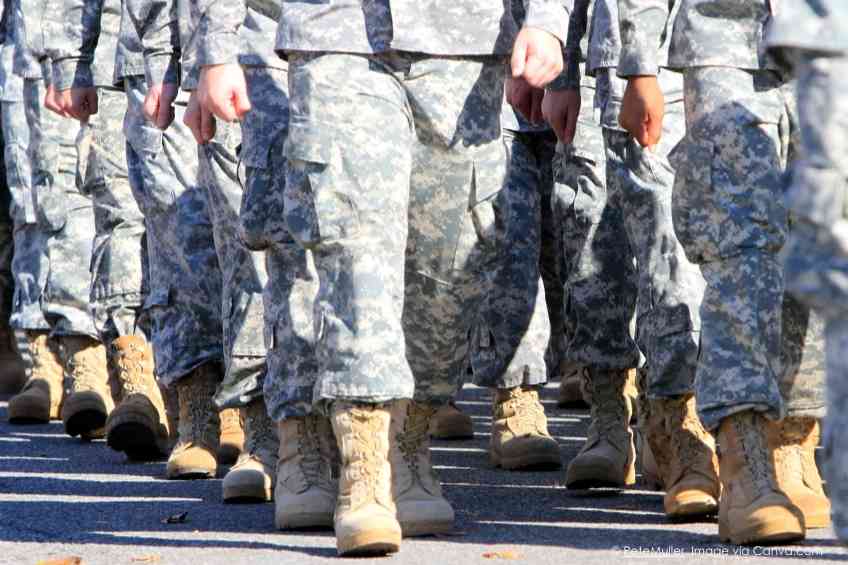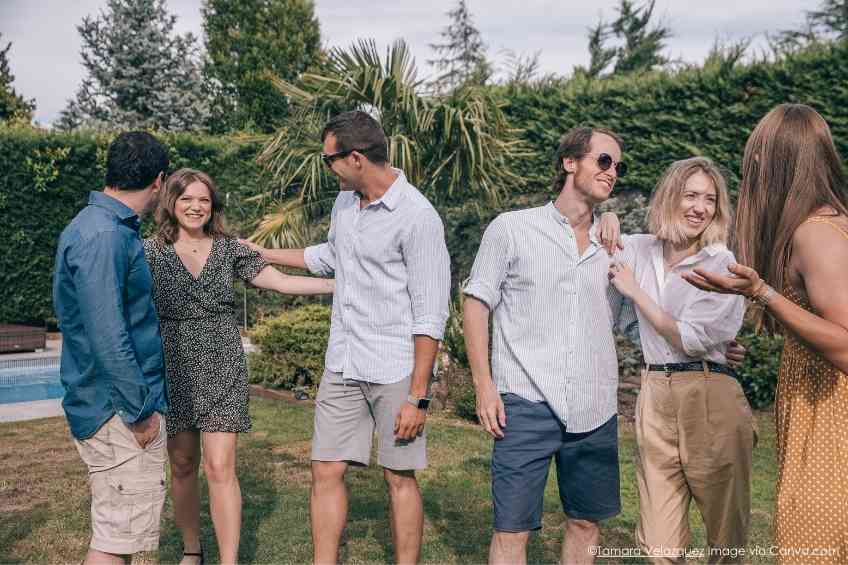Americans generally revere their service men and women. That, however, doesn’t mean people fully understand or appreciate the personal costs and sacrifices service personnel experience. Many of these warriors deal with demons that others can’t comprehend. They often come in from troubling emotions that haunt them for decades, undermining their mental and physical well-being. In recent decades, an increasing number of public and private organizations have stepped in to help tame these demons. One of the most unique and possibly effective is focused on turning emotions into rehabilitating songs. Renowned songwriter and singer Terry Radigan recently spoke with WellWell on how this program is healing warriors with song by using the power of music to help these troubled veterans—which could not be more appropriate and important with Veterans Day at hand.
What is Songwriting with Soldiers about?
Songwriting with soldiers is about pairing songwriters with veterans and first responders and just using the act of creativity and collaboration to build community. And the songs are a reflection of all of that.
How big is the organization and its reach?
Songwriting with Soldiers was formed around 2015. It was an organization co-founded by Darden Smith, a wonderful songwriter, and Mary Judd, who is just magic. They put this organization together as a great way to pair songwriters with veterans and now first responders to help them tell their stories. There are just under 6,000 songs that have been written that are all available on the Songwriting with Soldiers website. There’s also a band camp where you can look up Songwriting with Soldiers and go through those songs. It’s an incredible group of songwriters, which grows bigger every day, and this coming year, there might be just under a thousand songs written across the country.
How did you get involved with the group?
Darden Smith reached out to me in 2016 and asked if I would be interested in doing a retreat. I knew a lot of the other songwriters who were already doing it. At that first retreat when I walked in, I could feel the culture of it. I’ve done a lot of volunteering with songwriters, but this group had such intention and was so clear on their mission. And they incorporate so much more than just songwriting. It’s all about strengths workshops, creativity workshops, meditation and just ways to help you tap in and tune in. From that first retreat, I knew that this was something really special.
How does the process work? Do you team up with a particular individual?
There are usually four songwriters and when we all gather, there might be eight folks that we’re working with. Sometimes it’s couples. And we have this sort of first night of meeting everybody And then the songwriters give a little concert just to give an idea about who we are as songwriters. And then the next morning, all the songwriters get paired with someone.
You go in and you’ve got about two and a half hours to sit and talk. It’s amazing because some people come in and they have something that they want to say or other times they’re not sure. And over that time, slowly this song comes together. And we know as songwriters that there will be a song at the end of this. But that’s kind of all we know. So, it always reaffirms my faith in the power of a song and communication. If somebody sits across from you and you just say, let’s have a conversation and if we’re both here, the song will show up. I don’t know really what the music is going to be because I don’t know what they’ll say, but a song shows up. And then during that process, you have such a connection with the person sitting across from you, whether it’s one person you’re writing with, six or eight people. And my favorite part of it is a lot of times somebody says, well, I’m not great with words and I’m not creative. And, they sort of discount everything they’re going to say because they think it’s got to sound like a song. So, as we’re having that conversation to find the song, we’re all typing away different phrases because it’s important that that song is everything that comes out of the person’s mouth that you’re sitting across from.
What makes it special is somebody speaks to you and then you go, hey, this is what I have so far. And maybe you sort of play out what might be the first verse. And when you see somebody light up because they hear their words and all of a sudden they come back to them in this way that they can hear how special they are. And it’s a really special experience to have.
Are these individuals traumatized in some way? Even if they don’t know exactly what they want to say, is there some reason they’re there?
I think everybody’s there for different reasons. I think for the most part, they’re there because they want to feel better. And there’s some outreach that has to happen on their part. Sometimes they’ll find out about Songwriting with Soldiers through people who’ve been through the program. Sometimes they’ll find out about it from their local VA. So, they’re there because I think they can feel the intention and that it’s something for them. And whatever they bring in with them is different. And it’s been a range of folks who were just there to be like, I want to be back in the community with fellow service people. And that’s really powerful because those are all the other things that happen around the retreat. These are basically strangers coming together, but they know that culture and they know that community and the bonding that happens is instant.
Is it mainly servicemen and women from recent deployments or do you track back even further, maybe to the Vietnam War or the Korean War?
It goes all the way back. I did a retreat one time in upstate New York with a group of women who had their service range from the Korean War on up. And it was incredible.
Do you see different connections from different generations? Someone from the Korean War, even maybe the Vietnam War, are they relating differently to the music or to the process than someone who may be younger?
Yes, but they all find this common ground because service is what brought them all together. What I’m always struck by is the sensitivity of some of the younger service people who were not drafted. So, when somebody comes in from the Vietnam War, they have an automatic understanding and an appreciation and respect. I mean, that’s the big thing that comes across. They’re all in a room. They don’t know one another, but the level of respect is really special.
And you’re saying that’s because they were drafted. The process and engagement were different for them.
Well, I just think that they have a sense of what the difference is when you enlist or be drafted. So, I’ve sat with groups of maybe seven or eight men or women. And if there’s somebody there who had served in the Vietnam War, some of the younger people will defer to them and will make sure that during our process, they’ll be like: We know this was much different for you. We know how the public sentiment was. We know what the temperature was like when you came home. And then these younger military folks can say, well, yeah, maybe there’s not protests happening when we’ve come home about our service, but there still can be that lack of awareness that there’s even a war going on. So, there’s just so much understanding between them. It’s really powerful to watch.
How many songwriters are involved? It must be hundreds, right?
It’s growing every day. There has to be a bare minimum of 50. Forgive me, I don’t know the exact numbers, but it’s a really special group of songwriters who show up for this. And I’m also amazed because sometimes I show up at a retreat and there’ll be one or two songwriters that I don’t know. When they show up at this place, the given is that they’re wonderful songwriters. But what’s really astonishing to see every time is the heart and the intention, and they’re down with the mission.
What about the types of music?
It’s a little bit of everything. A lot of the songwriters come out of Nashville. So, there might be a little more of a country tint, but again, these are all pretty bad-ass songwriters who could cover just about anything. And then also when you sit down with somebody you might end up writing something that sounds more like a folk song because it goes with what’s coming out of their mouth. And you might end up writing something that’s more of a bluesy song. So, it’s really across the board, but whoever’s ever sitting in that room has the vocabulary to sort of go wherever the song takes them.
How difficult is the process to create a song, to connect and have someone express feelings that maybe they bottled up?
It’s different every time. I think the beautiful thing about a song is that it makes a story easier to tell and it makes that story easier to hear. So, when I’m sitting across from someone or a group of people, if it was just me taking it on or trying to figure out what to do with it, that would be hard, but that’s not what I’m doing. I’m sitting with a guitar in my lap and that song is between us. Sometimes the songs can be about some heavy things and there might be a lot of crying during it. But boy, when somebody is able to get that out and have it in this perfect vessel that a song is and it’s holding all of their thoughts and emotions, it’s an amazing experience. However hard it might have been to talk about or to share it, when you get to hear it back, maybe the first time is hard but the second time is easier and then you get to go out and maybe share it with your friends and family in a way that you haven’t been able to share that story before. It’s healing and cathartic and just powerful. It’s also incredible when you see how generous the people are who were sitting across from you. They are sharing things with you. They’re in it with you in the moment, they’re patient and gracious. So you’re so grateful for that.
How do you know when you’ve got it right?
There is no absolute right. When you sit down, your ears are tweaked for the words people are saying and somebody might say something that’s really cool. What are they going to say next? So, my songwriting brain is on, but it’s off. I’m not trying to think about how to make it a cool song. I’m just trying to keep in the room with the person who’s sitting across from me. And I’ve definitely had sessions where it’s just flowing out. And then there are some situations where it might take a while to show up.
I wrote with a woman named Kathy Coleman and in my session with her, I was trying to figure out where the song was going to wrap up because everything had flowed out so beautifully and I couldn’t. Everything we talked about, just kept hitting these walls. And then I got in my head and I didn’t know what to do. Here’s this woman sitting across from me, patient, trusting, and I am going to blow this because I just want to hit a home run. You just want someone to be thrilled about it. I finally realized that I needed to fess up to this woman. She has been vulnerable with me. She’s been sharing with me. And I said, “Kathy, you know what? I’m just not quite sure where the song goes or how it ends. Do you mind if we take another 20 minutes and be a little late for lunch?” She said, totally fine. She’d been wearing this necklace, a beautiful silver pendant. And I could see that there was some writing on it. So, I said, Kathy, I’ve been admiring your necklace. I see it has some writing on it. What does it say? And she was like, well, it’s a pendant for suicide awareness and it basically said, my story isn’t over or my story has no end. And we both stared at each other. And I went my goodness, I’ve been trying to find the end to this song and there is no end. And we basically took the inscription off of that pendant. And that was the end of the song, which meant it continued. But boy, that magical moment of the two of us laughing taught me so much. Had I not been vulnerable, like she’d been with me, and stayed in my head, we’d still be in that room. So, all of those things happened during the right session. You want to get it right. You want it to be a great song. And in order to have that happen, you just have to surrender.
What have you been able to take from these sessions, and apply to your own music?
Everything. Anytime you’re sitting across from somebody and you’re saying, we’re going to write a song, trust yourself, trust what comes into your head. The song is here to hold it. Anything I’m telling them, I’m telling myself. It’s also directly linked to me as a human. And that affects my songwriting when you sit across from somebody and you’re just listening and being present. When you know that there’s no place for your opinions, suggestions and thoughts. It’s taught me all about being present and being quiet. There’s nothing else in my life that has ever presented itself to me in that way and has just made me a better person. Even when I leave one of these retreats and I go back out into the world, I look at people differently. I don’t know what their story is. I don’t know what they’re walking around with. And then when I sit down to write a song, I internalize in myself and it puts me in a really good spot.
How many of these songs have you been able to produce with Songwriting with Soldiers?
I’ve probably written maybe 300 or 400 songs. And again, if you go to the Songwriting with Soldiers website, all of these songs are listed and available to listen to, to stream for free or to download on Bandcamp.
What happens to the soldiers after the session is over? They’ve expressed it and they’ve heard it. What do they do from there?
After that second day of the retreat, songs are written in the morning, and then a whole new batch of songs are written in the afternoon. In the evening, you come together for a concert where all those songs are performed. So all the songwriters are there, all the participants are there. And it’s incredible. You get to hear people listening to their songs. The other people who were there, even if it’s not their song, they hear themselves in the song. There’s so much love and celebration for what people have done. And then Songwriting with Soldiers has a sound engineer with a mobile field recording setup. So sometime during that retreat as a songwriter, you’re going to record those songs professionally. Then those songs are all mixed and sent to all the participants. So, they leave with that song and they can play it for their friends or share it with other people. It’s sort of up to them.
The other special thing they do is provide a professional photographer at the retreat chronicling the entire weekend. They might duck into a writing session and take photos of the participants in workshops so then at the end they put together a Songwriting with Soldiers book from that retreat. So, they also have this tangible thing to hold and go back to. It’s about building a community and having this song and book to say, wow, this really happened. There’s also a Facebook page where a lot of these folks can join and stay in that community. And even the people that I’ve worked with, I’m in touch with so many of them who will reach out. It’s awesome. And then a lot of times folks are like, my goodness, I didn’t know I was creative or I didn’t know what came out of my mouth sounded that good. They’re writing and sometimes they’ll share some poems with me or they’ll share songs with me or just reach out and say hi. It’s a real sense of community that gets built.
How does Songwriting with Soldiers fund itself?
It is through donations and they are growing. They’re not affiliated with the military at all. There’s no funding for that. They’re doing a beautiful way of trying to expand the reach and awareness of it. And everybody who shows up, whether or not they’re doing the marketing or the operations, at their core, they’re so committed to saying, this is really worthwhile.

About Terry Radigan
Terry Radigan is a well-recognized songwriter, whose work cuts across several genres. Grammy-nominated songwriter, Radigan’s work mixes her gritty Brooklyn girl sensibility with a deep respect for classic American roots, country and soul. Her solo releases are widely played, well-received and covered by a wide variety of artists. Radigan prides herself on her range of volunteer work, including her commitment to Songwriting with Soldiers, which began in 2016.
To learn more, please visit terryradigan.com and Songwriting with Soldiers.













